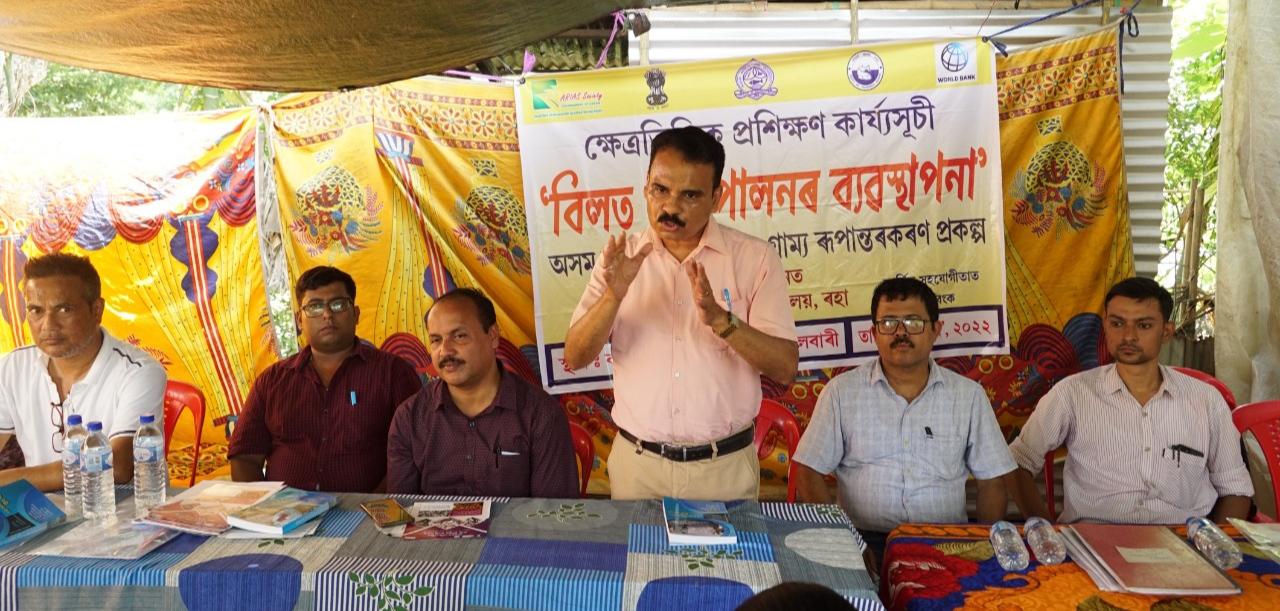Under the aegis of Assam Agri Business and Rural Transformation Project (APART), the college of fisheries, Raha has recently completed approximately 20 numbers of sustainable Community Management Beel Fisheries training programmes in Nagaon, Sivasagar, Morigaon and Nalbari districts in collaboration with the Department of Fisheries Government of Assam.
The training module for the sustainable management Bill Fisheries development was developed by WorldFish while field level training was conducted under the guidance of Dr. Binod Kalita, Dean, College of Fisheries, Raha.
The concerned departmental officers, KVK scientists, project associates and fisheries experts under the project acted as resource persons where a total of 700 beel fisheries development management committee members attended the training.
Dr. Kalita speaking on the training session stressed to make a sustainable venture to contribute towards the state's further growth in aquaculture and to adapt a long strategy. In his speech he said "The strategy discussed here emphasises not only technical feasibility and economic viability, but also an approach for environment friendly and social acceptability".
Dr. Sanjay Sarma, fishery coordinator of ARIAS society, said that the technology demonstration in Beel fisheries under apart is aimed to develop by combining indigenous nutrition rich small fish (e.g. mola) with Indian carps supported with species and stock enhancement, stock improvement and habitat management and improvement, cage culture on pilot basis to demonstrate community involvement in productivity enhancement.
Addressing few programme, Dr. D.J. Sharmah, Nodal Officer, APART (Fishery) under Directorate of Fisheries is also thrust into biodiversity, habitat and resource conservation to be properly taken care of in the beel fisheries developed under the project. "The positive aspect of community management beel fisheries is that they can develop continuously with minimal environmental disturbance," he added.
It is to mention that the state of Assam is identified, as the hotspot of fresh water biodiversity. The rich natural resources of the state harbour a good number of fish species. So far, about 216 fish species have been reported to be present in the region, which is approximately 30% of total Indian fresh water fish. Sustainable utilisation of resources as well as development and enhancement of potentially untapped fishery resources were focused during these training programmes.
Meanwhile, the College of Fisheries, Raha has planned to conduct similar training programmes at other districts also.
- 19473 reads










Add new comment